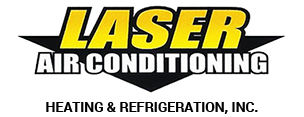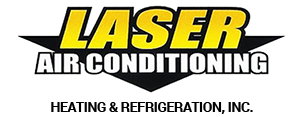An HVAC technician is a skilled professional responsible for the installation, maintenance, and repair of heating, ventilation, and air conditioning (HVAC) systems. These systems are crucial for maintaining comfortable indoor environments in residential, commercial, and industrial settings. HVAC technicians play a vital role in ensuring that these systems operate efficiently and effectively, providing heating and cooling solutions tailored to the needs of their clients.
Core Responsibilities of an HVAC Technician
- Installation of HVAC Systems:
- One of the primary duties of an HVAC technician is the installation of new HVAC systems. This involves setting up heating units, air conditioning units, ventilation systems, and related components. Technicians must ensure that all parts are installed correctly, including ductwork, thermostats, and electrical connections. Proper installation is essential for optimal system performance and longevity.
- Maintenance and Inspection:
- Regular maintenance is key to ensuring the longevity and efficiency of HVAC systems. HVAC technicians perform routine inspections and maintenance tasks, such as cleaning filters, checking refrigerant levels, and lubricating moving parts. They also inspect ductwork for leaks and ensure that all components are functioning as intended. Preventive maintenance helps to identify and address potential issues before they lead to major breakdowns.
- Repair Services:
- When HVAC systems malfunction, HVAC technicians are called to diagnose and repair the issue. This may involve troubleshooting electrical problems, fixing leaks, replacing faulty components, or addressing issues with airflow and temperature control. Technicians must be able to quickly and accurately identify the cause of the problem and implement effective solutions to restore system functionality.
- System Upgrades and Replacements:
- HVAC technology continuously evolves, and older systems may become outdated or inefficient. HVAC technicians advise clients on system upgrades and replacements to improve energy efficiency and performance. They help clients choose the right equipment and ensure that new systems are installed correctly to maximize their benefits.
- Emergency Services:
- HVAC systems can fail unexpectedly, and technicians often provide emergency repair services. Whether it’s a furnace failure in the middle of winter or an air conditioning breakdown during a heatwave, HVAC technicians are essential for addressing urgent issues and restoring comfort.
Skills and Qualifications of an HVAC Technician
- Technical Knowledge:
- HVAC technicians must have a thorough understanding of heating, cooling, and ventilation systems. This includes knowledge of various types of HVAC equipment, refrigerants, electrical systems, and control mechanisms. They must be familiar with industry standards, building codes, and safety regulations.
- Problem-Solving Skills:
- Diagnosing and resolving issues with HVAC systems requires strong problem-solving skills. Technicians must be able to identify the root cause of problems, analyze symptoms, and develop effective solutions. This often involves using diagnostic tools and interpreting technical data.
- Mechanical Aptitude:
- HVAC work involves working with complex machinery and components. Technicians need mechanical aptitude to understand how different parts interact and to perform tasks such as assembling and disassembling equipment. They must be comfortable working with tools and handling physical tasks.
- Communication Skills:
- Effective communication is crucial for HVAC technicians, as they must interact with clients to explain issues, provide recommendations, and discuss repair or installation options. Clear communication helps build trust and ensures that clients understand the work being performed and any associated costs.
- Certification and Licensing:
- Many regions require HVAC technicians to obtain certification or licensing to legally perform HVAC work. Certifications, such as those from the North American Technician Excellence (NATE) or the Environmental Protection Agency (EPA), demonstrate a technician’s expertise and adherence to industry standards. Licensing ensures that technicians meet local regulatory requirements and have the necessary skills to perform their duties safely and effectively.
Education and Training
- Formal Education:
- Many HVAC technicians start their careers by completing formal education programs, such as vocational training or associate degree programs in HVAC technology. These programs provide foundational knowledge in heating, cooling, and ventilation systems, as well as hands-on training with real equipment.
- Apprenticeships:
- Apprenticeships offer on-the-job training under the guidance of experienced HVAC technicians. Apprenticeships combine classroom instruction with practical experience, allowing trainees to gain valuable skills and knowledge while working on real HVAC systems.
- Continuing Education:
- HVAC technology is constantly evolving, and technicians must stay up-to-date with the latest advancements and industry trends. Continuing education opportunities, such as workshops, seminars, and manufacturer training programs, help technicians maintain their skills and knowledge.
Work Environment and Conditions
- Varied Work Settings:
- HVAC technicians work in a variety of settings, including residential homes, commercial buildings, industrial facilities, and construction sites. The work environment can vary depending on the type of project and the specific needs of the client.
- Physical Demands:
- The job of an HVAC technician can be physically demanding. Technicians often work in confined spaces, climb ladders, and lift heavy equipment. They must be able to handle the physical requirements of the job while ensuring safety and efficiency.
- Safety Considerations:
- HVAC technicians must adhere to safety protocols to protect themselves and their clients. This includes using personal protective equipment (PPE), following proper procedures for handling refrigerants and electrical components, and ensuring that work areas are safe and free from hazards.
Career Opportunities and Advancement
- Specialization:
- HVAC technicians have the opportunity to specialize in specific areas, such as residential or commercial systems, refrigeration, or indoor air quality. Specialization can lead to increased expertise and higher earning potential.
- Management and Supervision:
- Experienced HVAC technicians may advance to management or supervisory roles, overseeing teams of technicians and handling administrative tasks such as scheduling, budgeting, and client relations.
- Entrepreneurship:
- Some HVAC technicians choose to start their own businesses, offering installation, maintenance, and repair services to clients. Entrepreneurship provides the opportunity for greater control over work schedules and business operations.
Conclusion
An HVAC technician plays a crucial role in maintaining the comfort and functionality of heating, ventilation, and air conditioning systems. With a combination of technical knowledge, problem-solving skills, and hands-on experience, HVAC technicians ensure that HVAC systems operate efficiently and reliably. Whether installing new equipment, performing maintenance, or providing emergency repairs, HVAC technicians are essential to keeping indoor environments comfortable and safe. Their expertise and dedication contribute significantly to the comfort and well-being of homeowners and businesses alike.

